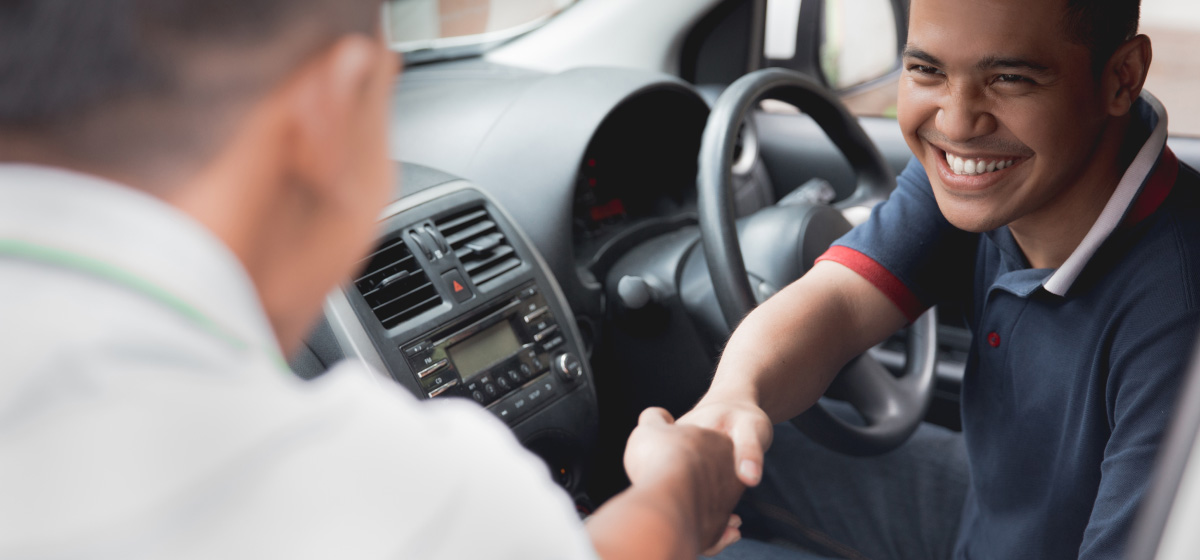The day of your driving test is definitely nerve-racking for most. But it doesn’t have to be! By this point you should have received plenty of instruction and practice. Remember that, during your test, you won’t be asked to do anything that you haven’t already done dozens of times before during your lessons.
The night before the driving test
Get plenty of sleep the night before, if you can. This’ll help you focus during the test. If you’re tired, you run the risk of your reactions being slower than usual. So get those ZZZs in!
You might find it’s best not to tell friends or family you’re doing the test. That way, you avoid the pressure of expectations. And hopefully duck any ill-judged horror stories.
The morning of the driving test
Most driving instructors will recommend that you have a lesson just before your test. This usually lasts an hour and is a chance to warm up. Shake off your pre-test nerves and make mistakes so you don’t repeat them during the test.
It’s a good idea to turn up about 15 minutes before the test is due to begin. This way, you’ll have time to let them know who you are, grab a glass of water, go to the bathroom… All without being hurried, but you won’t be hanging around too long either.
What do I need to bring to my practical driving test?
There are a few things you’ll need to make sure you bring with you for your driving test:
- Your provisional licence
- Your theory test pass certificate
- A car – most people use their driving instructor’s, but you can use your own car
What happens at the start of the driving test?
Before you begin, the examiner will test your eyesight. You’ll have to read a number plate on a parked car from a distance of 20 metres. If you fail the eyesight check, you’ll fail your driving test.
Next, you’ll be asked two questions on vehicle safety – these are called ‘show me, tell me’. This is because one question will be answered by demonstrating something to the examiner, and one will be answered by simply explaining your answer.
How many car lengths is 20 metres?
20 metres is around 5 car lengths. So you can easily test if your eyesight is good enough for your driving test by checking if you can see a clean number plate at a distance of 5 car lengths away.
What can I expect during my driving test?
The practical driving test takes around 40 minutes. During this time, your general driving ability and skills will be tested in a variety of road and traffic conditions.
You’ll be tested on the following during your test:
- An eyesight check
- ‘Show me, tell me’ vehicle safety questions
- General driving ability
- Reversing your vehicle
- Independent driving
You may also be asked to complete an emergency stop. Don’t fret though – you won’t be asked to do it while it’s hazardous to do so.
For more info, you can find out exactly what’s in a driving test here.
Important things to remember during the test
- You’re not a qualified driver, so the examiner isn’t expecting you to be perfect.
- Forgetting directions or taking a wrong turn won’t affect your test result. Qualified drivers do it all the time.
- You’re allowed to make up to 15 small mistakes or driving faults, often called minors, before your test result is affected. So don’t panic if you do something wrong!
- But you will fail if you make more than 15 minor faults, or have one serious or dangerous fault.
What happens after my driving test?
Your examiner will let you know if you’ve passed or failed as soon as you park back up in the test centre. If you’ve passed your test the examiner will:
- Tell you what faults you made, if any
- Give you a pass certificate
- Ask if you want your full licence to be sent to you automatically (within 3 weeks). If so, give the examiner your provisional licence
Congratulations, you clever sausage! You can start driving straight away… But remember that your Learner Driver Insurance is no longer valid.
If you haven’t quite sorted an annual policy yet, you’ll need to buy temporary insurance, even if it’s just to get you home. Remember, if you took your test in your own car, we won’t be able to offer you temporary cover unless you’re over 21. That’s only because you need a bit of experience first. If you are under 21 and have 6 months’ driving experience, you know where to find us!
If you haven’t passed, the examiner will let you know what faults you made. Remember it’s not the end of the world, and you can book another test 10 working days after. To help you further, we’ve got some useful advice on what to do if you fail your test.
